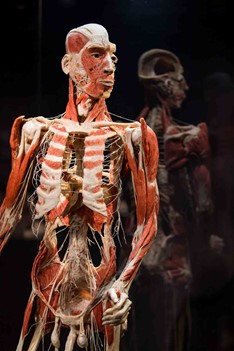Did you ever wonder why the need to pee is stronger when you are feeling cold? It is all because of how the bladder and the urination system works. In this blog, we are looking into urine health, the bladder and 9 pee facts.
Your bladder is inside your lower belly and is connected to the kidneys with the ureters. This organ functions like a balloon, when its empty it is small, but full it has a capacity of 500 milliliters (5 cups) until up to even 700 ml for men. When the bladder expands the nerves in the wall send a signal to your brain that it is time to go.
Thanks to the bladder, we are not constantly leaking, it holds our urine until there is enough for a visit to the smallest room. A healthy person who drinks enough urinates around six to eight times a day. It is recommended to drink 2 liters of water per day.
How do we keep our bladder healthy?
Keep these tips in mind to keep a healthy urinating system.
- Drink around two liters of water every day. This is very beneficial for the bladder to controls the fluids in your body. This way your body can flush out the bacteria.
- Do not smoke. The lungs might seem far from your bladder, but tobacco increases the risk of bladder cancer. Stay away from the cigarettes.
- Especially women are prone to bladder infections. It can happen when a bacteria finds its way to through the urinary tract. A way to reduce the risk of getting infected is by making sure that you urinate completely. If you stop too soon, the urine that didn’t reach the end will find its way back to your bladder and can bring back bacteria into your system this way.
- Bladder infections happen often after having sexual intercourse. It does not matter what you are into, but hygienic wise: keep it clean!
- If you have a sedentary job make sure you stand up every now and then and keep your body moving.
- Eat cranberries or drink cranberry juice. Cranberries contain a substance that helps prevent bacteria to stick to the walls of the bladder. This helps to reduce infections. Cranberry juice is often used to treat these infections or prevent them.
 Why do we pee more when we are cold?
Why do we pee more when we are cold?
You might have had the feeling that when you are feeling cold, the need to pee increases. It is a fact that we pee more when it is cold.
One of the reasons why this happens is due to a physiological response called cold diuresis. Your blood vessels constrict, so blood can flow to areas in your body to keep those organs warm. Doing so your blood pressure increases and excess fluid will be needed to be flushed out by peeing.
Trying to stay warmer? Empty your bladder! When it is full, your body uses energy to keep the fluid inside warm. When you emptied it out, the energy to keep it warm can go to other parts of your body to keep warm. So urinating helps with staying warmer.
9 facts about urine
Do you want to learn more about pee? URINE luck! Here’s 9 more facts about our bladders and what comes out of it.
- The color of urine can provide clues about a person's health. Clear urine usually indicates that a person is well hydrated, while dark yellow urine can be a sign of dehydration.
- Drinking tea, coffee or beer makes you pee more frequently. These drinks (and others) contain diuretic substances which stimulate water loss by urinating. We have discussed more the more frequent toilet visits due to caffeinated drinks in our blog about what caffeine does to the body, read it here.
- Urine is made up of approximately 95% water, with the remaining 5% consisting of various waste products and electrolytes.
- The waste products include urea, creatinine, and uric acid. These products are filtered out of the blood by the kidneys and excreted in urine.
- The smell of urine can be affected by a person's diet, medications, and other factors. For example, asparagus can cause urine to have a strong odor, and certain medications can give urine a sweet smell.
- Urine can be used for medical testing to detect a variety of conditions, including diabetes, kidney disease, and urinary tract infections.
- In some cultures, urine has been used for medicinal purposes for centuries. For example, in ancient Rome, urine was used as a mouthwash, and in traditional Chinese medicine, urine has been used to treat a variety of ailments.
- In certain situations, urine can be used as a source of energy. For example, in the early 1900s, urine was used as a source of methane gas in some homes.
- Urine is sterile when it leaves the body, meaning it does not contain any harmful bacteria. However, it can quickly become contaminated if it comes into contact with external sources of bacteria.

